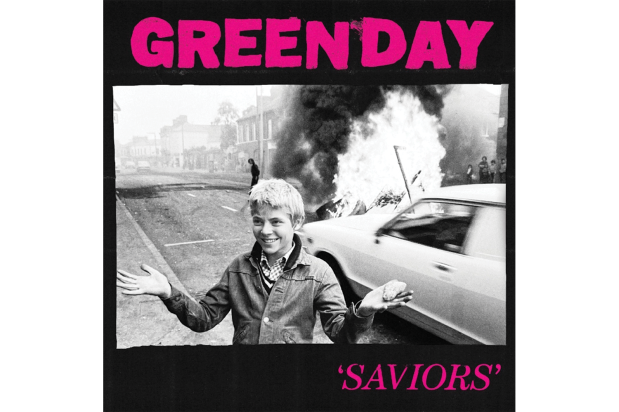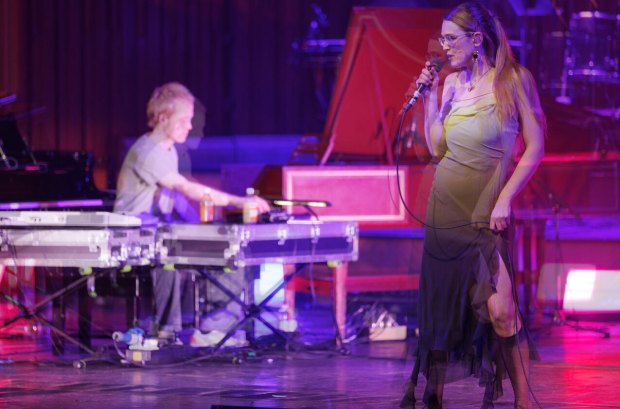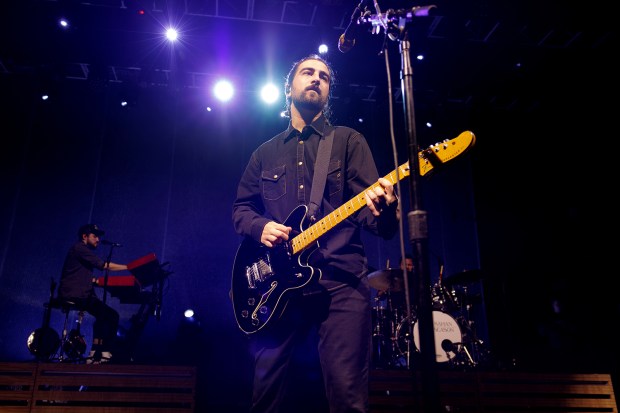I have been writing a book this summer, in the usual mad tearing hurry. (Much as I admire those who take four or five years to write one, I have to ask, how do you eat? This isn’t by any means a sensible way of making a living.)
Intense workload, though, means music, and lots of it. Many writers simply cannot work with tunes blaring out of nearby speakers; I cannot work without them. Music masks my tinnitus and distracts the part of my brain that would otherwise be trying to distract me from my work. You know, the Facebook part. The videos-of-cats part. The Marks & Spencers chocolate-covered shortbread part.
Normally, when not writing a book, I would play quite loud, beat-heavy music while working: ‘the rhythm of rhyming guitars’, in Bryan Ferry’s deathless phrase. But as stress levels rise, so the need for calmer music becomes more acute. Calmer, but not blander. I need my anxiety to be soothed, but I still need the non-writing part of my brain to be engaged. What to play? And then what to play after that?
The problem is that there’s an awful lot of quiet, bland, sweet and pleasant music around. If it could be composted, landfill sites around the world would be full to bursting and we’d be firing the stuff off into outer space. I can’t tell you how many CDs I have bought over the years, hoping that this or that variety of quiet, pleasant music wouldn’t be sweet or bland, but in truth it’s easier to make a Kings of Leon album, for example, than almost anything else in the world. (A knitted scarf? A cup of tea?) To make quiet music of substance takes more than talent and application: I think it takes luck as well.
My benchmark for this project has been Brian Eno’s Apollo: Atmospheres & Soundtracks, an instrumental album he made in 1983 with his brother Roger and fellow producer Daniel Lanois as backing for some film the Apollo astronauts shot while orbiting the moon. It’s impossibly eerie, otherworldly music (appropriately), but it’s also music of great melodic richness that I have listened to hundreds of times over the years. Eno has recorded much ambient music before and since, but there’s never enough in it to grab on to, if you know what I mean. That said, I have found Another Green World (1975) and Music For Films (1978), both mainly instrumental as well, very suitable for my purposes.
Slightly more modern electronica has been provided by Lunz (2003), a collaborative album by the prolific German musician Hans-Joachim Roedelius (who is now 80) and the American composer Tim Story. I heard a track on a compilation album ‘curated’ (i.e., chosen) by Neil Tennant of Pet Shop Boys: a piano-based melody augmented and enhanced by cello, oboe, a little orchestration and subtle dabs of synthesiser. The rest of the Lunz album is equally nutritious, although later collaborations between the two have been duller. Roedelius has made millions of albums over the years, as part of Cluster, Harmonia, and as a solo artist. My guess is that he doesn’t worry about it too much and just gets on with the next one. With Lunz, the lightning of inspiration struck: it’s warm, approachable and full of protein.
A certain repetitiveness can help: there have been Michael Nyman moments this summer and, maybe bizarrely, Status Quo moments too. (Baroque music is also good for this: those endless identical Vivaldi concerti.) But the album I keep coming back to is Thomas Newman’s 2008 soundtrack for Sam Mendes’s film Revolutionary Road, which features the same very simple piano melody repeated over and over again with very slight variations, and again, the atmospheric, mainly synthesised backing that seems to calm my anxious soul. This is music as massage, or maybe a long late-night bath. But music can do so many jobs for us. Why not this?
Finally, I return, not for the first time, to King Creosote and Jon Hopkins’s 2011 collaboration Diamond Mine, all windswept Scottish coastline and ancient tales of hard lives: quiet but intense. I love a record that just creeps under your skin and becomes part of you, without any conscious choice on your part. It’s beyond analysis or objectivity, as all the best things are. The book, I’m glad to say, is nearly done, and to be honest so am I. Can’t wait to listen to something loud and messy, like real life.
The post Music to write books by appeared first on The Spectator.
Got something to add? Join the discussion and comment below.
Get 10 issues for just $10
Subscribe to The Spectator Australia today for the next 10 magazine issues, plus full online access, for just $10.













Comments
Don't miss out
Join the conversation with other Spectator Australia readers. Subscribe to leave a comment.
SUBSCRIBEAlready a subscriber? Log in